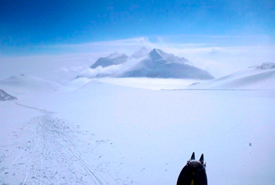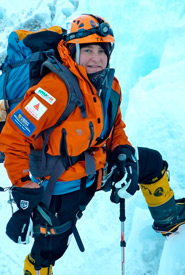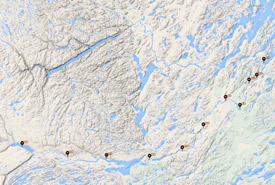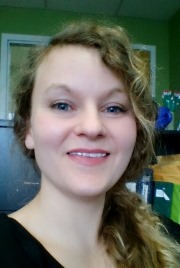Ingredients of a great explorer (Part One)

A view of the Antarctica landscape - taken during TA’s expedition to climb Antarctica’s highest peak (Photo by TA Loeffler)
Excerpts and images are taken with permission from TA Loeffler's blog, Adventures that Move.
Earlier this week the local newspaper caught my eye with the headline, “Local woman named one of country’s greatest modern explorers.” Late into the morning I was still deep into said explorer’s story, immersed in her blog and hooked by her fascinating and well-told tales of adventure and outdoor experience. Her stories are woven with themes of protecting natural landscapes and connecting with nature — themes that make her stories all the more relevant, to all readers.
TA Loeffler is an educator, adventurer, nature advocate, author and professional keynote speaker from St. John’s, Newfoundland and Labrador. There is no mistaking that TA Loeffler belongs on Canadian Geographic’s list of Canada's greatest explorers 2015, alongside widely-recognized names such as Roberta Bondar, James Cameron and David Suzuki. TA’s incredible accomplishments speak for themselves, but are only one of the ingredients that make her a remarkable explorer and an inspiration to exploration enthusiasts far and wide.
Adventurer

TA climbing Khumbu Ice fall (Photo by TA Loeffler)
TA’s achievements are not only numerous but of a magnitude that is almost incomprehensible to someone like myself (whose off-the-beaten path adventuring rarely surpasses bushwhacking through neighbourhood alders). TA has climbed six of the world’s seven highest peaks, with only Everest left on her list to conquer later this year. She helped open a new route along a remote piece of Greenland that hadn’t been skied before. She has canoed 210 kilometres along the Kanairiktok River to the Labrador Sea. This past Christmas she hiked nine volcanoes in El Salvador. This summer she’ll return to northern Labrador to kayak to two coastal mountains, which she will then climb.
TA says her sense of exploration and adventure comes from an innate curiosity that was nurtured from an early age: “I love wondering about what’s around the corner and then going and finding out. I was allowed a free-range childhood so I roamed freely around my neighbourhood, cabin and nearby woods. As a result, I’ve always enjoyed spending time outdoors and so I grew the skills I needed to be able to explore more widely and remotely as my life progressed,” she says.
Storyteller
TA has an acute ability to communicate the intricacies of her experiences using pictures and words:
“I’m trying to find syllables to describe one million shades of white. The circling, not setting of the sun. A breeze so potent it chills, then freezes quickly, almost without notice. Blue. Black. White. A limited colour palette interrupted only by the colourful dots of humanity who temporarily inhabit the place. The place of perpetual ice and snow. Unending day for months at a time, then night for the same. Remote. Stark. Pristine. Rhymes with the chapel, only more sacred for me.” ~ Excerpt from Vinson Vignette #1: Lost for Words.

Loeffler’s 210-kilometre canoe route from Lake Shipiskan to the Labrador Sea (Screenshot courtesy of TA Loeffler)
Teacher
Not only can TA tell a story in writing, but she also engages audiences with her tales. As an award-winning professor of human kinetics and recreation at Memorial University, TA tries to communicate the value of protected areas to her students:
“I think it is absolutely critical to conserve and protect Canada’s landscapes and natural areas. As I teach in my outdoor recreation management class, we need to have natural spaces to go out into — for health, for wellness, for physical activity, for spiritual renewal. If we don’t set some areas aside to be free from development, they will be consumed. If children don’t have outdoor and natural spaces to play and explore in, they won’t develop a relationship with nature and will be bereft of all the benefits that such a relationship affords. Without that relationship, future generations will see no need to consider further conservation, and more natural spaces will be lost.”
TA uses her powerful stories to motivate audiences far and wide, encouraging them to challenge themselves and embrace exploration, adventure and curiosity in all forms.
“I also try to advocate for outdoor experiences for everyone and especially the importance of nature connection for children,” says TA.
Stay tuned for Part Two of my blog, coming March 9, for more of what makes an explorer and where you can learn the ways of adventure seeking.


